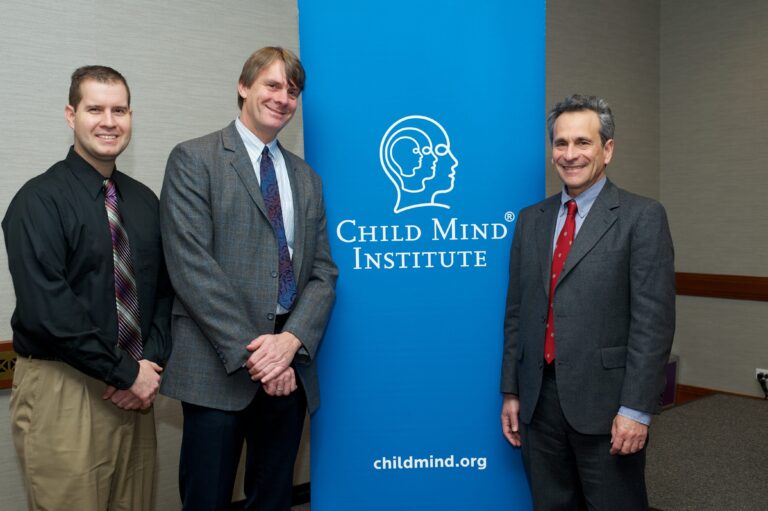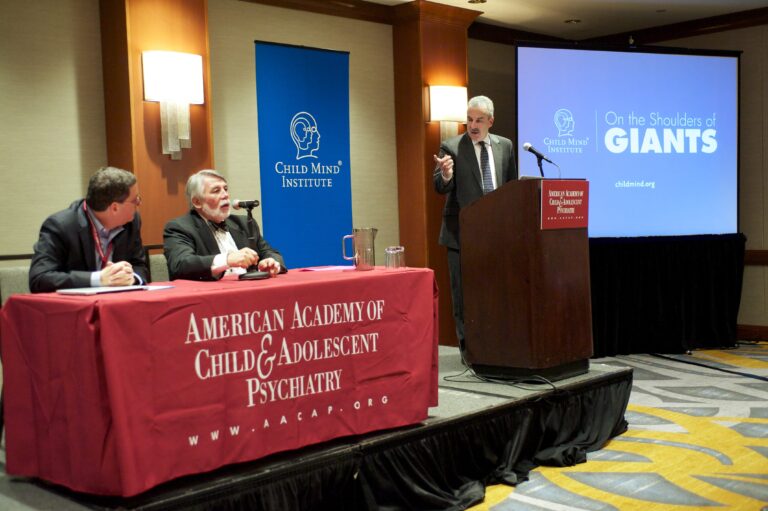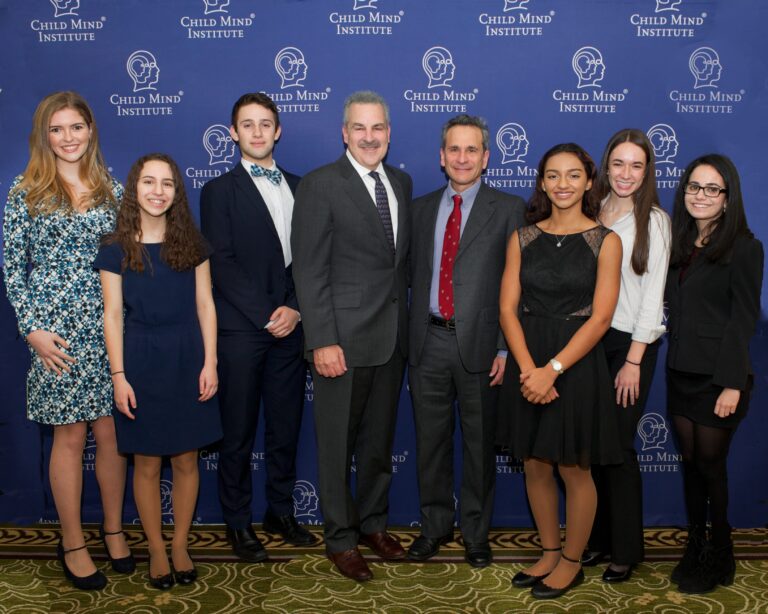Blog
At the 2016 On the Shoulders of Giants Symposium
Yesterday the Child Mind Institute held its 6th annual On the Shoulders of Giants symposium, celebrating our 2016 Distinguished Scientist John Rubenstein, MD, PhD of the University of California, San Francisco. The program was certainly a deep and inspiring dive into developmental neuroscience — at the end, there were multiple audience questions about introductory text books they might read to better understand the subject!
As befits the mentoring and teaching focus of On the Shoulders of Giants, Dr. Rubenstein presented with two of his former trainees, or “protégés”: Daniel Vogt, PhD, also of UCSF, and Stewart Anderson, MD, of the University of Pennsylvania. All three scientists spoke about the incredible organization that occurs in early brain development, as DNA, cells and organelles work together almost magically to assemble one of the universe’s most complicated creations.

Dr. Rubenstein spoke about his landmark research of the past three decades, which painstakingly explained the process by which the brain brings itself into being. From transcription factors that orchestrate cell placement at a broad level to the cortical enhancers that guide neural circuit creation with pinpoint accuracy, the process is incredible—and that we now understand it so well is almost equally so. Dr. Rubenstein also explained how unforgiving neural development is, requiring high degrees of accuracy in 3 dimensions, and his hypothesis that subtle dysfunction in this process is eventually responsible for much of psychiatric illness.
Dr. Vogt gave a primer on how errors and insults in early development can lead to dysfunction in the brain — including psychiatric symptoms — and presented on fascinating new research, using viruses to remove and replace damaged molecular code in the brain. And Dr. Anderson made a lively presentation of where we are and where we are going in developmental neuroscience, particularly as it is relevant to clinical practice. He also touched on the possibilities of personalized, targeted treatments for brain-based diseases. The time is ripe, he said, “for clinicians to use basic science to effectively target psychiatric illness.”

Child Mind Institute Scientific Research Council members Matthew State, MD, PhD, and Bennett Leventhal, MD, served as discussants, summing up the presentations and giving some take-home lessons to the audience of parents, educators, and attendees at the American Academy of Child and Adolescent Psychiatry’s (AACAP) annual meeting. Dr. State described the heft of the program succinctly.
“John identified molecular cues that develop the brain and are implicated in psychiatric disorders,” he told the room. “Daniel builds on this understanding, showing that we can put things back into a living brain and have them work again. And Stewart’s underlying observation is that he rescued an adult phenotype caused by an insult during fetal development. It is remarkable to have come so far.”
Before the symposium, a celebratory breakfast honored the six winners of this year’s Child Mind Institute Rising Scientist Scholarships. These outstanding 12th grade students in the New York metropolitan area have demonstrated exceptional promise in science.

Projects the winners have been involved in include research in the Mt. Sinai Department of Endovascular Neurosurgery, a study of cholinergic neurotransmission in the starlet sea anemone, a 300-subject study of gender difference in peer group emotional support and a talk at the annual meeting of the Association for Behavioral and Cognitive Therapies. The winners this year are:
- Maximilian Bazil, John F. Kennedy High School (Bellmore)
- Cosette Davis, Queens High School for the Sciences at York College
- Rachel Goldman, Ardsley Union Free School District
- Claire Kelly, John F. Kennedy High School (Bellmore)
- Lauren Singer, Scarsdale High School
- Caitlin Unkenholz, Smithtown High School West
Stay tuned to the Child Mind Institute’s social channels for more on these remarkable students!
